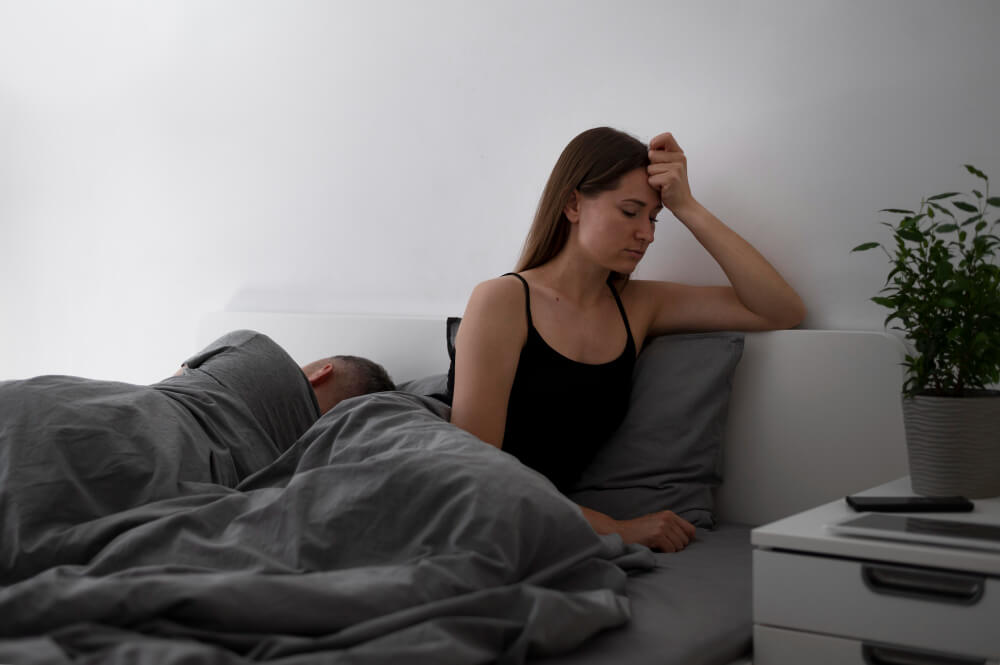Sleep, a simple act seemingly effortless for many, becomes a frustrating and elusive experience for millions who struggle with insomnia and sleep deprivation. These two conditions, while often intertwined, have distinct characteristics and consequences, impacting our physical and mental health in profound ways.
Insomnia: The Silent Thief of Sleep
Imagine tossing and turning all night, desperately yearning for sleep but unable to find it. This nightly struggle is the reality for countless individuals grappling with insomnia. Defined by difficulty falling asleep, staying asleep, or waking up too early feeling unrested, insomnia disrupts the natural sleep cycle, leaving individuals feeling exhausted and depleted.
Causes of Insomnia:
- Stress and anxiety: The mind races with worries, preventing relaxation and sleep.
- Medical conditions: Pain, chronic illness, or neurological disorders can disrupt sleep patterns.
- Medications: Certain medications can have sleep disturbances as side effects.
- Environmental factors: Noise, light, extreme temperatures, and uncomfortable bedding can hinder sleep.
- Lifestyle choices: Irregular sleep schedules, caffeine and alcohol consumption, and late-night screen time can contribute to insomnia.
Sleep Deprivation: The Hidden Culprit
Sleep deprivation occurs when we consistently fail to obtain the recommended amount of sleep, typically 7-8 hours per night. This lack of sleep can be the result of insomnia, but also arises from work schedules, shift work, social activities, and poor sleep hygiene. Regardless of the cause, sleep deprivation leads to a cascade of detrimental effects on our well-being.
Consequences of Sleep Deprivation:
- Fatigue and daytime sleepiness: Difficulty concentrating, staying awake, and performing daily tasks.
- Impaired cognitive function: Weakened memory, judgment, and decision-making abilities.
- Increased risk of accidents and injuries: Impaired coordination and alertness can lead to accidents.
- Mood swings and irritability: Frustration, anxiety, and difficulty managing emotions.
- Lowered immunity: Increased susceptibility to infections and illnesses.
- Higher risk of chronic diseases: Obesity, diabetes, heart disease, and high blood pressure are linked to sleep deprivation.
The Intertwined Web:
While insomnia and sleep deprivation have distinct defining characteristics, they often coexist in a complex relationship. Individuals with insomnia may experience sleep deprivation due to their inability to achieve sufficient sleep, while sleep deprivation can exacerbate existing insomnia symptoms.
Unraveling the Mysteries: Understanding Your Sleep Patterns
Finding solutions to combat insomnia and sleep deprivation requires understanding the underlying causes. Keeping a sleep diary can be a valuable tool. By recording factors like bedtime, sleep duration, wake-up time, sleep quality, caffeine intake, and mood, individuals can identify patterns and triggers that contribute to their sleep struggles.
Proven Strategies for a Restful Night:
While the causes of insomnia and sleep deprivation may vary, numerous strategies can help individuals reclaim their sleep and wake up feeling refreshed.
- Establish a regular sleep schedule: Go to bed and wake up at the same time each day, even on weekends, to regulate your body’s natural sleep-wake cycle.
- Create a relaxing bedtime routine: Engage in calming activities like reading, taking a warm bath, or listening to soothing music to unwind before bed.
- Optimize your sleep environment: Make your bedroom dark, quiet, cool, and clutter-free to create a sleep-conducive atmosphere.
- Limit caffeine and alcohol intake: Avoid caffeine and alcohol consumption, especially in the hours leading up to bedtime, as they can interfere with sleep quality.
- Regular exercise: Engage in physical activity for at least 30 minutes daily, but avoid strenuous workouts close to bedtime.
- Manage stress: Practice relaxation techniques like meditation, deep breathing, or yoga to calm your mind and body and promote better sleep.
- Seek professional help: If self-help strategies fail to provide relief, consult a doctor or sleep specialist to identify underlying medical conditions or develop a personalized treatment plan.
Embracing Rest and Reaping the Benefits:

Prioritizing sleep is not a luxury but a necessity. By addressing insomnia and sleep deprivation, individuals can unlock a world of benefits:
- Improved energy levels: Feeling refreshed and energized throughout the day to tackle tasks and enjoy activities.
- Enhanced cognitive function: Increased focus, concentration, memory, and better decision-making ability.
- Improved mood and well-being: Reduced stress, anxiety, and irritability, leading to a more positive outlook on life.
- Boosted immunity: Strengthened immune system to fight off infections and illnesses.
- Reduced risk of chronic diseases: Lower risk of developing diseases like obesity, diabetes, heart disease, and high blood pressure.
Conclusion:
Sleep is the foundation of our physical and mental health. By understanding the complex nature of insomnia and sleep

